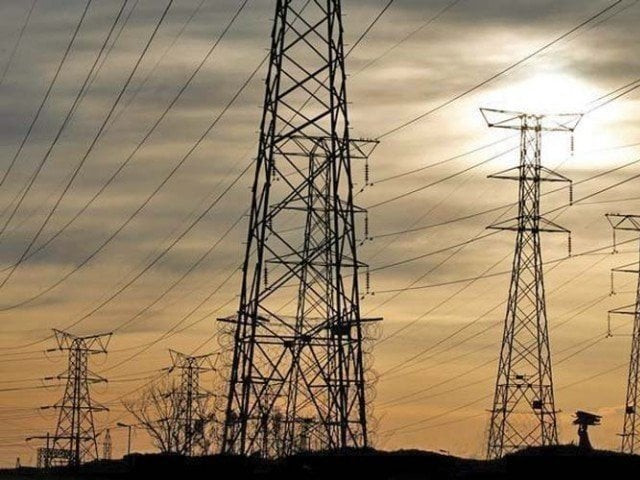ECC forwards NEPRA Act amendment draft to cabinet
Amendments aimed at passing on cost of inefficient governance to consumers, timely notification of tariff increase

PHOTO: EXPRESS
The government has approved the proposal to re-introduce the electricity surcharges in the monthly bills and pass on the impact of electricity theft, technical losses and high capacity payments on a quarterly basis and then recover from the consumers on a monthly basis.
The Economic Coordination Committee of the Cabinet approved the draft amendments to the Regulation of Generation, Transmission and Distribution of Electric Power Act 1997 aimed at fulfilling key conditions set forth by the International Monetary Fund (IMF) and the Asian Development Bank (ADB).
The amendments have been proposed to stop the recurrence of the circular debt that currently stands at Rs1.7 trillion, including over Rs460 billion added during the PTI government’s first year in power.
However, the problem with the amendments is that the debt, which is piling up because of the government’s failure to ensure full recovery of electricity bills and theft, will be paid by the consumers in the shape of tariffs and surcharges.
GHQ recommendation: PTI govt approves R300m to raise Pakistan Rangers special wing
These proposed amendments, if approved by parliament, carry far-reaching implications for those consumers who regularly pay their electricity bills.
“The ECC discussed the proposed draft amendments in detail and recommended their submission to the cabinet with a slight modification in the text to make it clearer as per input from some members of the ECC”, according to a handout issued by the finance ministry.
It was the condition of the IMF under the $6 billion bailout package to submit these amendments in parliament by the end of December. However, the government could not meet the deadline.
The amendments to the National Electric Power Regulatory Authority (Nepra) Act will give the regulator the power to determine and notify quarterly tariffs, ensure timely submissions of quarterly and annual petitions by the Discos, eliminate the gap between the regular annual tariff determination and notification by the government and reinstate the power of the government to levy surcharges over and above the system’s revenue requirements under the Nepra Act, according to the IMF first review report.
The ECC was told that the proposed amendments to the Regulation of Generation, Transmission and Distribution of Electronic Power Act, 1997 were aimed at bringing more clarity and precision in the market operation, uniform tariff, timely submissions and determination of quarterly and annual tariffs, stated the finance ministry.
After the ECC’s go-ahead, the proposed amendments would be taken up by the cabinet and before their submission in the National Assembly Secretariat for further discussion by the NA Standing Committee and other relevant stakeholders, including Nepra, before being put to the vote in the house, according to the ministry.
The government has proposed scores of changes in the 1997 law that relate to electricity generation, transmission, distribution, sale to bulk power consumers, market operator licence, responsibilities of electric power trader, system operator licence and more importantly, determination of tariff.
By amending the Nepra Act, the increase in electricity tariffs will be done through an automatic mechanism to update power generation costs in tariffs in each quarter, within 15 days of the determination by Nepra.
The last PML-N government delayed the notification of increase in electricity tariffs on account of capacity payments to the power producers due to political considerations. After coming into power, the PTI government had increase electricity tariffs four times, aimed at recovering an additional Rs470 billion from the electricity consumers.
The tariffs are now based on a new uniform tariff mechanism, according to the amendments, which incorporate budgeted subsidies and cross-subsidisation among distribution companies to help control sectoral deficits.
Generation costs accounted for more than 75% of end-user tariffs currently and the automated mechanism would prevent the backlog of system costs even if tariff notifications were delayed.
Govt seeks nod for Rs170b supplementary budget
One of the most important amendments has been proposed in the Section 31 of the 1997 law that sets new parameters for determination of annual, quarterly and monthly tariffs by limiting the government’s power to withhold notifications and passing on inefficiencies to the consumers.
The federal government will have to notify the annual tariff within one month and if it fails to do so, Nepra will automatically notify the changes in the official gazette, according to the proposal.
In case of quarterly adjustments, the government will have to notify new tariffs within 15 days or else the job will be done by Nepra. But the worrisome aspect is the cost components that the consumers will pay.
Nepra may “make quarterly adjustments in the approved tariff on account of capacity and transmission charges, impact of transmission and distribution losses, variable operation and maintenance and policy guidelines as the federal government may issue”, according to the proposal.
Nepra currently determines tariff by assuming 100% electricity bills recovery and technical losses at 15.5%. However, the recoveries are far less than the assumptions and losses are far higher than the threshold.
The ECC also approved the proposal to re-introduce the powers to slap surcharges on the consumers on account of funding of the public sector projects and financial cost of the power sector.


















COMMENTS
Comments are moderated and generally will be posted if they are on-topic and not abusive.
For more information, please see our Comments FAQ